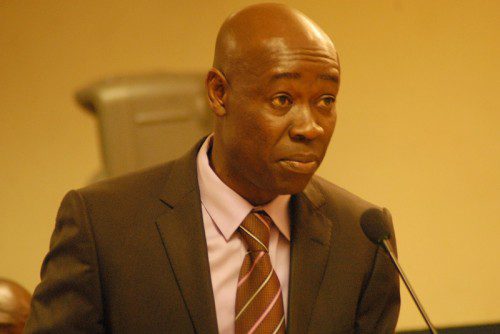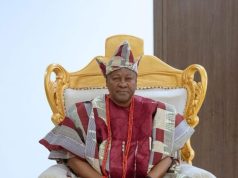Renowned lawyer Thaddeus Sory has sharply criticized Ghana’s Parliament and Majority Leader for issuing an unsolicited apology over the controversial raid on former Finance Minister Ken Ofori-Atta’s residence, accusing lawmakers of overstepping their mandate and undermining the rule of law.
His rebuke follows Parliament’s public expression of regret for the February 11, 2025, security operation, which Sory argues was neither Parliament’s responsibility to address nor justified under legal principles.
“Why is Parliament apologizing for an action it did not authorize or execute?” Sory questioned in a scathing social media post. “Did Parliament send the security operatives? Did they seek your approval? If not, why insert yourselves into an active investigation?” The lawyer’s remarks spotlight growing tensions over institutional boundaries, as lawmakers face accusations of political interference in the work of security agencies and the Office of the Special Prosecutor (OSP).
Sory challenged Parliament’s inconsistency, noting that similar—or more egregious—security operations targeting ordinary citizens and lesser-known figures have never prompted parliamentary apologies. “Did Parliament apologize to the Emirati woman abducted in Accra last year? Or to [activist] Bongo Ideas, detained without charge for weeks? If not, why start with Ofori-Atta?” he asked, arguing that selective sympathy for high-profile individuals erodes public trust in governance.
He further stressed that Ofori-Atta, as a private citizen no longer holding parliamentary immunity, is subject to the same legal scrutiny as any Ghanaian. “Is he an MP? Does he have immunity from search or arrest? If not, why the special treatment?” Sory pressed, dismissing claims that the raid warranted unique parliamentary intervention.
The lawyer recounted past instances of security agencies detaining politicians and activists without cause, often at odd hours and without subsequent charges. “I’ve spent nights at Police Headquarters with clients picked up arbitrarily. No apologies were offered then. Why now?” he stated, emphasizing that unequal application of justice risks normalizing impunity for the powerful.
Sory’s critique extends to what he calls Parliament’s “emotional grandstanding,” which he warns could obstruct legitimate investigations. “Let the security agencies do their jobs. The law demands fairness—audi alteram partem [hear the other side]—not political meddling,” he asserted, referencing legal principles that require due process for all parties.
The controversy underscores a fraught dynamic in Ghana’s governance: the blurring of lines between legislative oversight and executive accountability. By apologizing for an operation outside its purview, Sory argues, Parliament has set a dangerous precedent that could embolden future targets of investigations to seek political cover rather than legal recourse.
Critics of the apology, including civil society groups, warn that it risks politicizing law enforcement and weakening public confidence in institutions. “Parliament’s role is to legislate and oversee, not to act as a public relations arm for individuals under probe,” said governance analyst Akosua Mensah. “This muddies the waters of accountability.”
The raid and its fallout have also intensified scrutiny of the OSP, which has faced accusations of both overreach and inefficiency. While the OSP denied authorizing the operation, its handling of the Ofori-Atta case—including declaring him a “fugitive” while he sought medical care abroad—has drawn criticism for procedural missteps.
Sory’s intervention amplifies calls for the OSP to focus on substantive legal action rather than public theatrics. “If there’s evidence, prosecute. If not, stop the noise,” he urged, challenging the office to restore its credibility through convictions, not press conferences.
As pressure mounts, Parliament faces demands to clarify its stance on judicial independence and equal application of the law. For Sory, the path forward is clear: “Respect due process, uphold the rule of law for all citizens, and let institutions function without fear or favor.” Whether lawmakers heed this advice—or continue down a path of selective advocacy—remains a litmus test for Ghana’s democratic maturity.
Read Sory’s full post below:
Send your news stories to newsghana101@gmail.com
Follow News Ghana on Google News
















